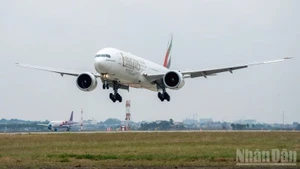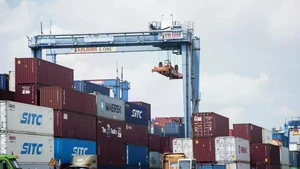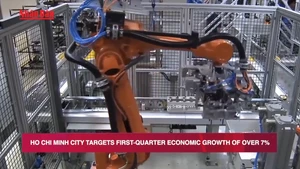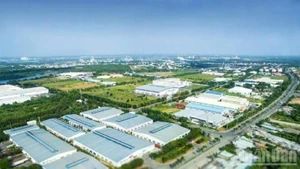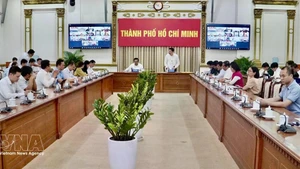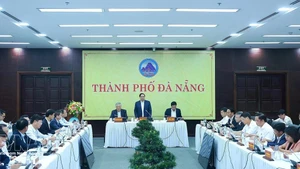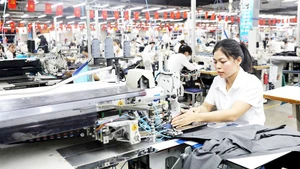Looking into economic and trade ties, the two ministers agreed on the need to enhance coordination amid complex global and regional economic developments, according to the Vietnamese ministry.
Dien informed that Viet Nam is completing domestic procedures for signing the protocol that upgrades the ASEAN – China Free Trade Area (ACFTA 3.0) as planned. He affirmed Viet Nam’s commitment to working closely with other ASEAN members and China to ensure its effective implementation for the benefit of businesses and citizens.
China remains one of Viet Nam’s most important trading partners, serving as a major export market and a key supplier of materials and goods. In 2024, bilateral trade reached a record high of 205.2 billion USD, marking a new milestone.
Viet Nam’s exports to China in the first eight months of 2025 rose 9.2%, up from the 7.1% expansion in the first seven months. Particularly in August, exports recorded a double-digit increase of about 22% year-on-year, reported the Viet Nam Trade Office in China.
Viet Nam’s key exports to China include agricultural products such as rice, coffee, cashew nuts, and fruits, along with seafood, electronic components, textiles – garment, rubber, and crude oil. Vietnamese farm produce have a strong foothold in the Chinese market thanks to geographical proximity and high consumer demand, with durian, dragon fruit, mango, and passion fruit maintaining solid growth.
Meanwhile, Viet Nam imports machinery, industrial equipment, production materials, consumer goods, and electronic components from China.
The diverse trade structure allows both countries to leverage their comparative advantages, contributing to shared economic growth.


